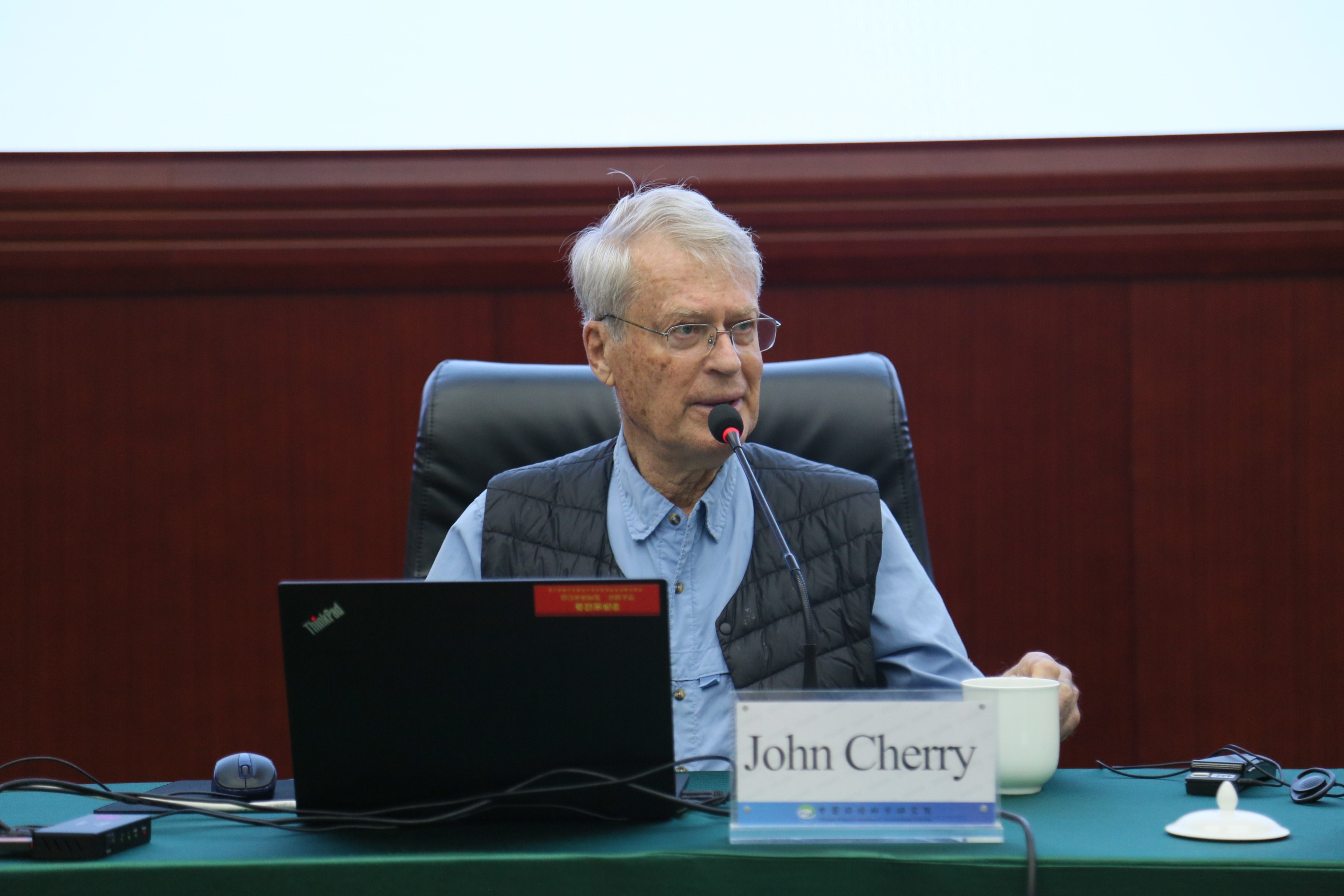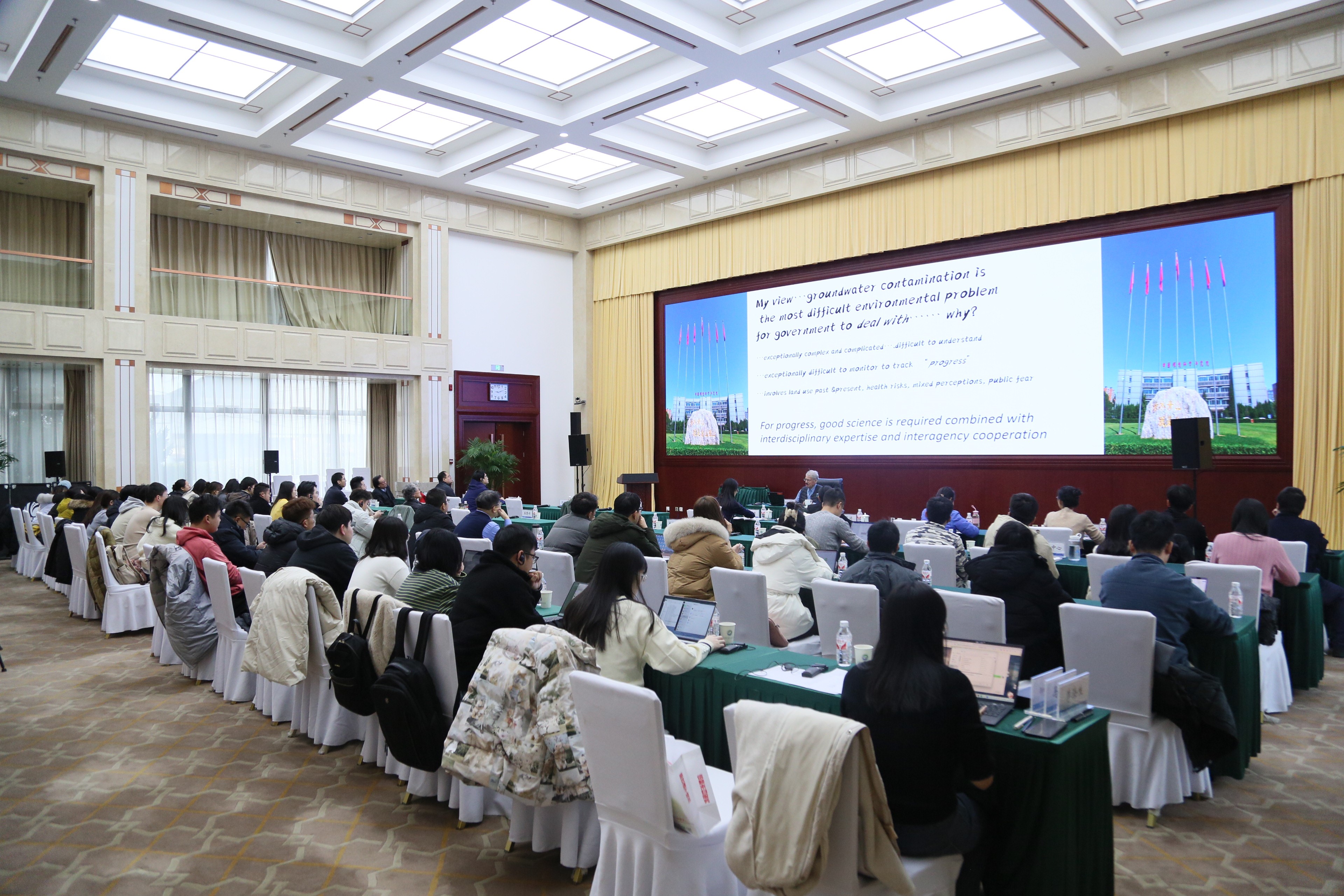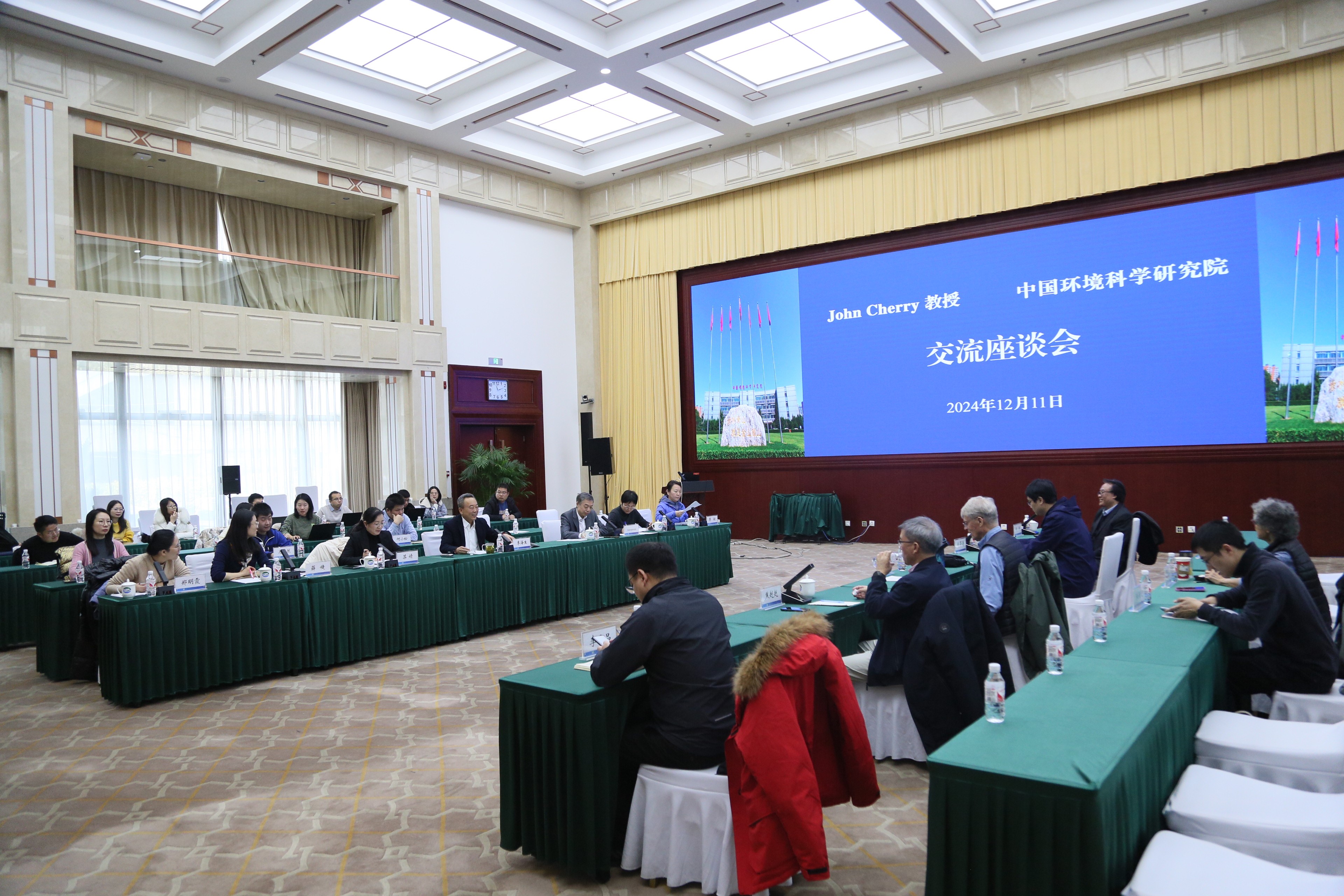
On December 11, 2024, Chinese Research Academy of Environmental Sciences (CRAES) held the 19th “Master Lecture” (the 7th session of the year 2024) and invited Professor John Cherry, Chair of the CRAES International Scientific Advisory Committee (CRAES-ISAC), as the guest speaker.

Professor John Cherry is the creator of the academic field 'Contaminant hydrogeology', a leading authority on the threats to groundwater from contamination and recipient of the 2020 Stockholm Water Prize, and fellow of the Royal Society of Canada and The Geological Society of America. Since serving as Chair of the CRAES-ISAC in 2018, Prof. Cherry has leveraged his expertise to advance groundwater science within CRAES and has provided strategic guidance to support its internationalization efforts.
Prof. Cherry delivered a lecture titled “Why Groundwater Contamination Is Such A Difficult Problem”. Drawing on decades of expertise in the field, he provided an in-depth analysis of experiences and lessons learned in groundwater pollution remediation from the U.S., Canada, and Europe. He also offered valuable recommendations for further groundwater pollution prevention and control in China. The lecture attracted over 500 participants, including domestic and international experts, scholars, and students from research institutions, who attended either in person or online.

Following the lecture, Li Haisheng, President of CRAES, engaged in discussions with Prof. Cherry and his delegation to explore opportunities for future collaboration. Li Haisheng highlighted CRAES’s recent interdisciplinary research achievements and the progress made in establishing a nationwide framework to advance ecological and environmental technologies. Prof. Cherry highly appreciated China’s remarkable progress in ecological advancement and reaffirmed his commitment to bolster CRAES's endeavors in its international presence and partnerships . Both sides agreed to strengthen practical collaboration in pivotal areas, including attracting top premier global talent, promoting the global application of scientific innovations, and fostering the development of international scientific organizations.
